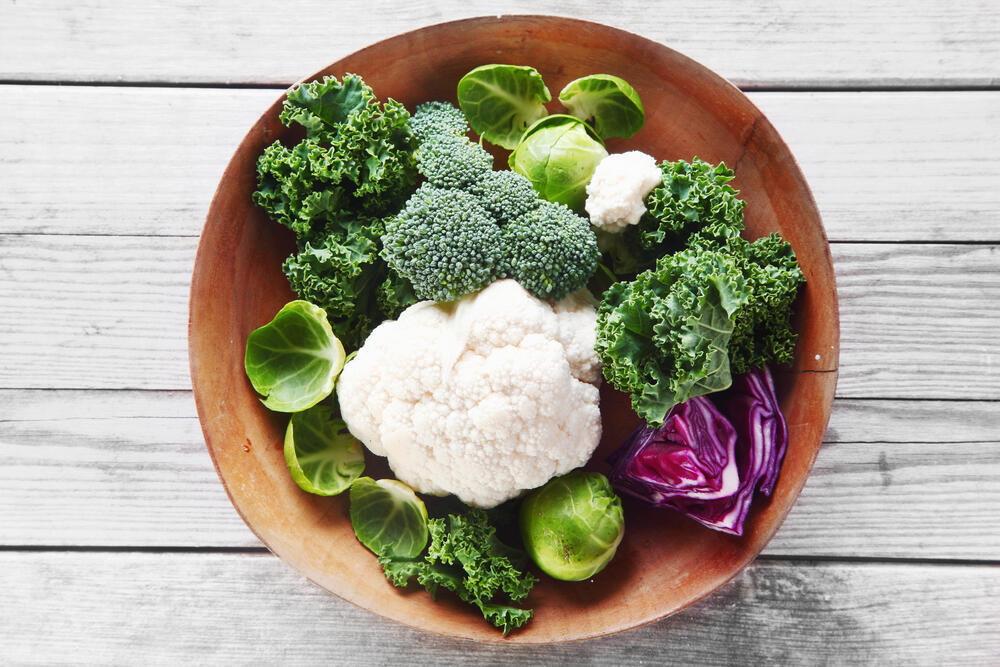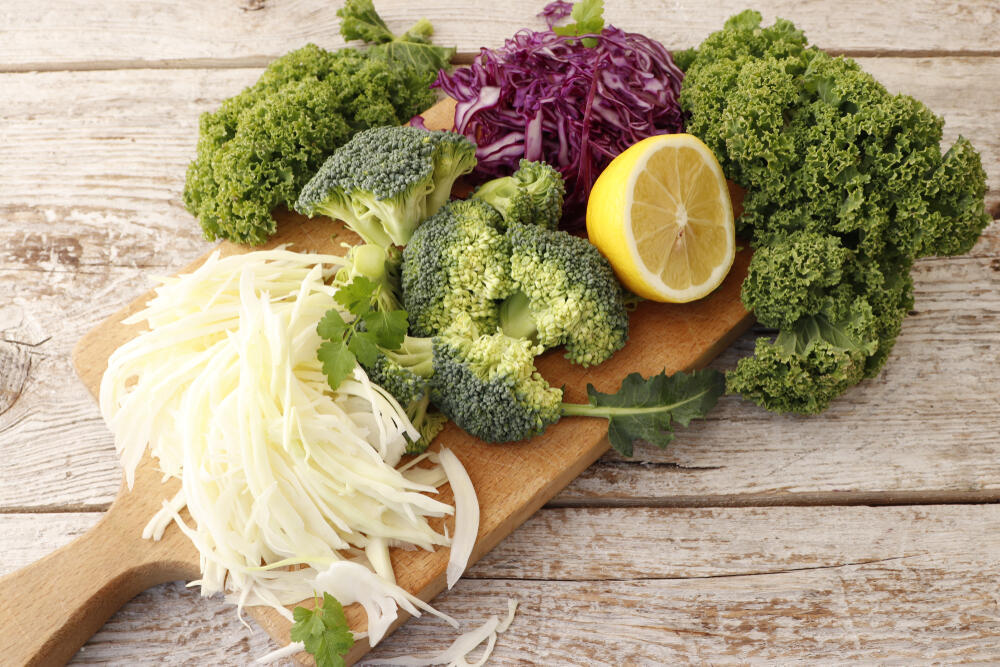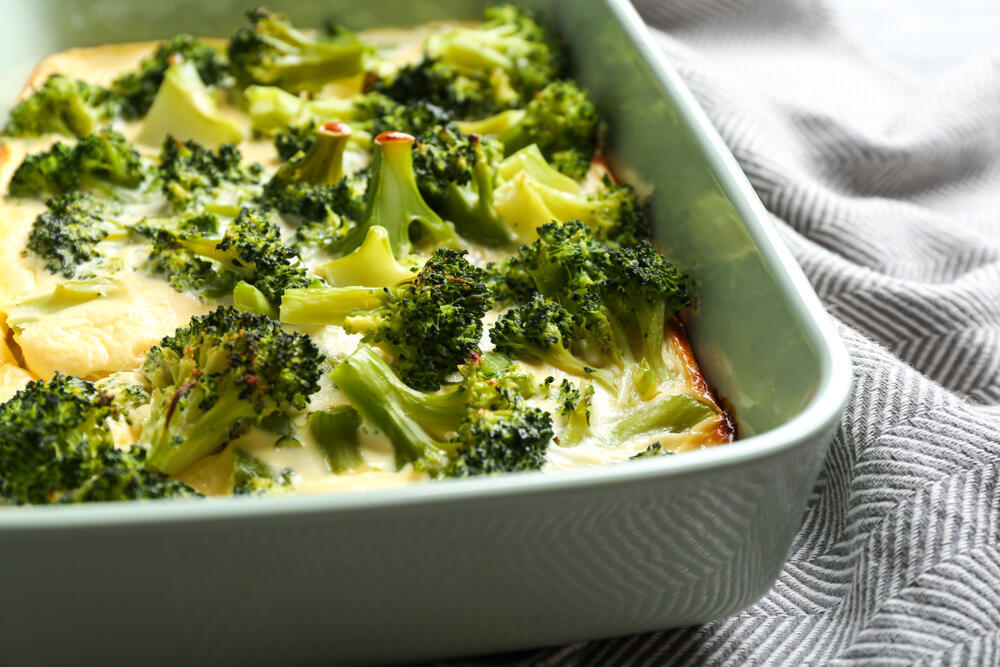Cruciferous vegetables, such as cabbage, cauliflower, radish, broccoli, arugula, kohlrabi, Brussels sprouts and kale, have long been known for their high levels of fiber, vitamins and antioxidants. Now, new research offers another compelling reason to include them in your daily diet: a significantly reduced risk of colorectal cancer.
Whether roasted, tossed into salads or lightly steamed, cruciferous vegetables are staples of the Israeli kitchen, available year-round and easy to prepare.
While their nutritional value is well established, a new large-scale study reinforces their importance: daily consumption of cruciferous vegetables like broccoli, cauliflower or kale is linked to a 17% decrease in the risk of developing colorectal cancer, one of the most common and deadly forms of cancer worldwide.
“Cruciferous vegetables are a group that includes cabbage, broccoli, cauliflower, kale, Brussels sprouts and mustard greens,” said Sabina Shahar, a clinical dietitian with Maccabi Healthcare Services.
“They contain powerful antioxidants known as glucosinolates, which are bioactive compounds with anti-cancer properties. These substances help neutralize toxins, reduce inflammation, affect cancer cells or cells that trigger inflammation, and ultimately help protect our DNA.”
Beyond their overall benefits, cruciferous vegetables contain several subgroups of active compounds that have been studied individually.
One group, known as isothiocyanates, includes a compound called sulforaphane, which activates the body’s detox pathways, repairs oxidative damage, reduces inflammation and influences cell cycles and apoptosis (programmed cell death). These are all mechanisms linked to cancer prevention, Shahar explained.
Another group, the indoles, includes a compound called indole-3-carbinol, which supports liver function and plays a role in hormone-related cancers by helping to block hormonal effects that may promote tumor growth.
A third group, nitriles, is the focus of increasing scientific interest and has also been shown to have bioactive, cancer-fighting properties.
The study, a meta-analysis involving approximately 600,000 participants across 17 observational studies, highlights the significance of diet in cancer prevention. “To give you an idea of scale,” said Shahar, “900,000 people die of colorectal cancer every year. It’s the third most common cancer globally.”
The research found that consuming 20 to 40 grams of cruciferous vegetables daily, equivalent to about half a cup or three broccoli or cauliflower florets, was associated with a 17% lower risk of colorectal cancer in those who ate the most, compared to those who ate the least.
Interestingly, researchers noted a plateau effect beyond 40 grams per day, meaning that higher intake did not lead to greater benefits and could even cause minor digestive issues such as gas or abdominal discomfort. “The key takeaway is to eat at least 20 grams,” said Shahar. “That’s not a large amount.”
To maximize the protective effect, Shahar recommends chopping cruciferous vegetables and letting them sit for about 40 minutes before cooking. “This increases their sulforaphane content,” she explained.
“After that, you can steam them, add them to soups or omelets, blend them into sauces or eat them raw in salads. Light steaming or sautéing is better than prolonged cooking. Kale, which is very popular today, can also be eaten raw or cooked.”
Despite the encouraging findings, Shahar noted the limitations of the study. As with many large-scale nutrition studies, this was observational, meaning researchers did not alter participants’ diets but instead relied on self-reported food intake over time. “The problem is that self-reporting isn’t always accurate; people forget, exaggerate or simply don’t remember exactly what or how much they ate,” she said.
She also pointed out that the studies included in the meta-analysis varied in structure and methodology, which can make it difficult to draw uniform conclusions. “Other factors like physical activity or sleep weren’t always examined thoroughly,” she added.
Still, Shahar emphasized that the overall message remains clear: “Even if observational studies don’t prove direct cause and effect, they support what we already know: diets rich in vegetables, particularly cruciferous ones, can play a significant role in reducing cancer risk. And when it comes to vegetables, variety and color are key.”
Ultimately, Shahar reminded, cruciferous vegetables are only part of the picture. “A healthy lifestyle overall is essential. That means eating foods as close to their natural form as possible and avoiding highly processed items, which are increasingly linked to cancer.
Physical activity is also crucial, as is getting enough sleep, something many people neglect. Avoiding smoking and alcohol, following medical screening recommendations and managing stress are all vital. Ultimately, mental well-being is just as important as physical health. Reducing stress and pressure, as much as possible, is at the heart of it all.”
Source link





